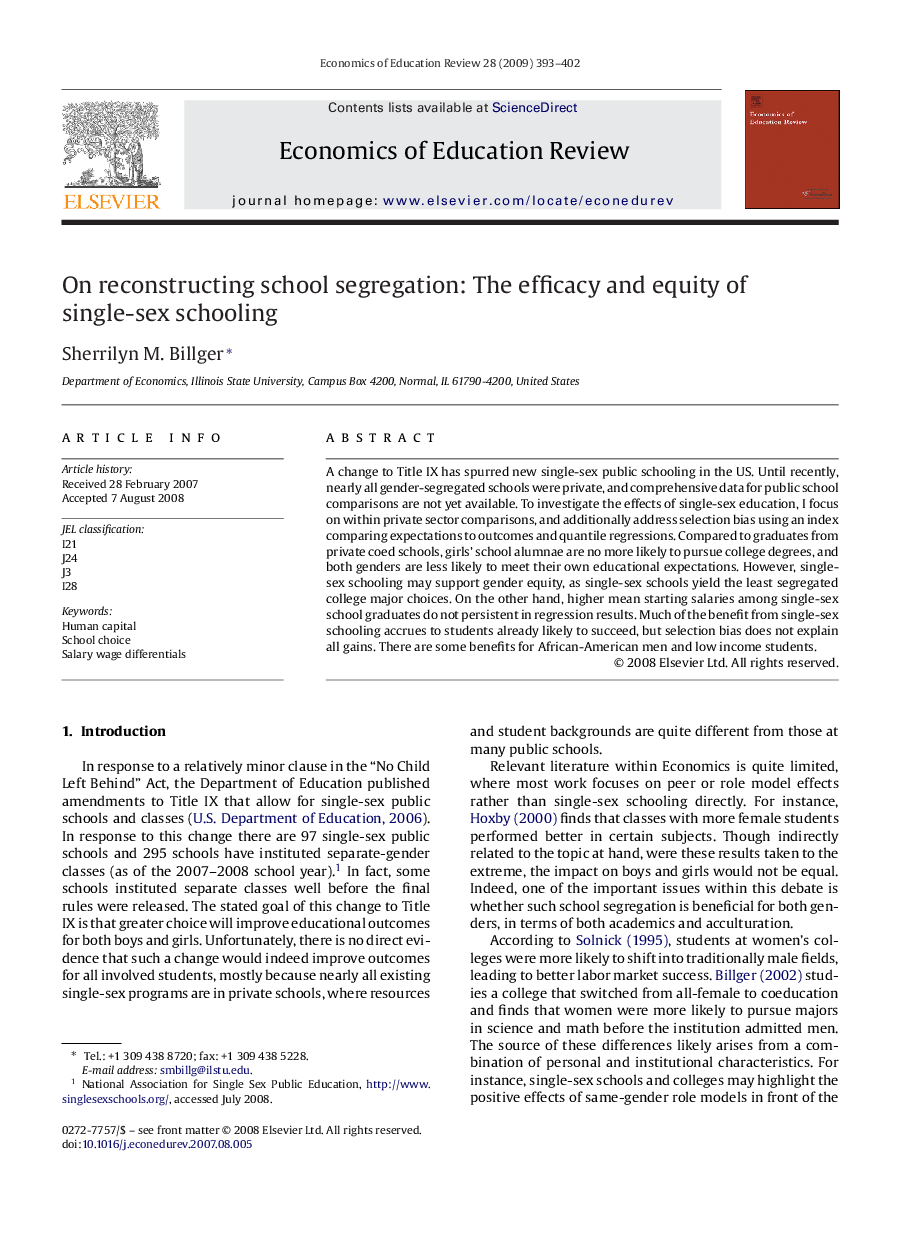| Article ID | Journal | Published Year | Pages | File Type |
|---|---|---|---|---|
| 354885 | Economics of Education Review | 2009 | 10 Pages |
A change to Title IX has spurred new single-sex public schooling in the US. Until recently, nearly all gender-segregated schools were private, and comprehensive data for public school comparisons are not yet available. To investigate the effects of single-sex education, I focus on within private sector comparisons, and additionally address selection bias using an index comparing expectations to outcomes and quantile regressions. Compared to graduates from private coed schools, girls’ school alumnae are no more likely to pursue college degrees, and both genders are less likely to meet their own educational expectations. However, single-sex schooling may support gender equity, as single-sex schools yield the least segregated college major choices. On the other hand, higher mean starting salaries among single-sex school graduates do not persistent in regression results. Much of the benefit from single-sex schooling accrues to students already likely to succeed, but selection bias does not explain all gains. There are some benefits for African-American men and low income students.
